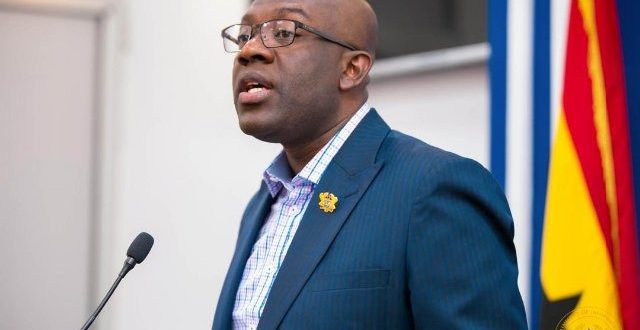Information Minister Kojo Oppong Nkrumah has told Parliament to approve the 2022 budget statement presented by the Minister of Finance.
He explained during a debate on the budget statement in Parliament on Tuesday November 23 that the document tackles the problems that the country is saddled with at the moment.
For instance, he said, the budget has special arrangement to address the issue of youth unemployment in the country.
This and several other reasons make it crucial for this budget to be approved by the House, the Ofoase Ayirebi lawmaker said.
“The most important question, unemployment is answered by this budget,” he said.
Mr Oppong Nkrumah further urged his colleagues in the Minority to approach the discussion on the budget from nationalistic perspective.
His admonishing comes after the Minority Spokesperson on Finance Casiel Ato Forson had said the 2022 budget statement is unacceptable.
Ato Forson also noted that the content of the budget is unrealistic.
Contributing to a debate on the budget in Parliament on Tuesday November 23, he said the New Patriotic Party (NPP) administration inherited a debt of GHS120 billion from the National Democratic Congress (NDC) but within four years, it has shot up to 341billion cedis
“In fact, if you do the maths, within four and half years you have incurred GHS221billion, representing almost 65 per cent of our GDP,” the lawmaker for Ajumako-Enyan-Esiam said.
“This budget is the most inconsistent budget I have ever seen,” he said.
The Finance Minister Ken Ofori-Atta announced a new levy to be charged by government in 2022 on all electronic transactions to widen the tax net and rope in the informal sector.
“It is becoming clear there exists enormous potential to increase tax revenues by bringing into the tax bracket, transactions that could be best defined as being undertaken in the ‘informal economy’,” Mr Ofori-Atta observed on Wednesday, November 17 as he presented the 2022 budget statement in Parliament.
“After considerable deliberations, government has decided to place a levy on all electronic transactions to widen the tax net and rope in the informal sector. This shall be known as the ‘Electronic Transaction Levy or E-Levy’.”
He explained that the new E-levy will be a 1.75 per cent charge on all electronic transactions covering mobile money payments, bank transfers, merchant payments and inward remittances to be borne by the sender except inward remittances, which will be borne by the recipient.
This will, however, not affect transactions that add up to GH¢100 pr less per day.
“A portion of the proceeds from the E-Levy will be used to support entrepreneurship, youth employment, cyber security, digital and road infrastructure among others.”
This new levy is scheduled to start Saturday, January 1, 2022.
In 2020, total value of transactions was estimated to be over GH¢500 million with mobile money subscribers and users growing by 16 percent in 2019.
According to a Bank of Ghana report, Ghana saw an increase of over 120 percent in the value of digital transactions between February 2020 and February 2021 compared to 44 percent for the period February 2019 to February 2020 due to the convenience they offer.
This was definitely heightened by the advent of Covid-19 especially during the lockdown.
Source: 3news.com


Send your news stories to myghanamedia@gmail.com and Chat with us via WhatsApp on +233 200818719
 MYGHANAMEDIA.COM Best Source Of Latest News
MYGHANAMEDIA.COM Best Source Of Latest News




